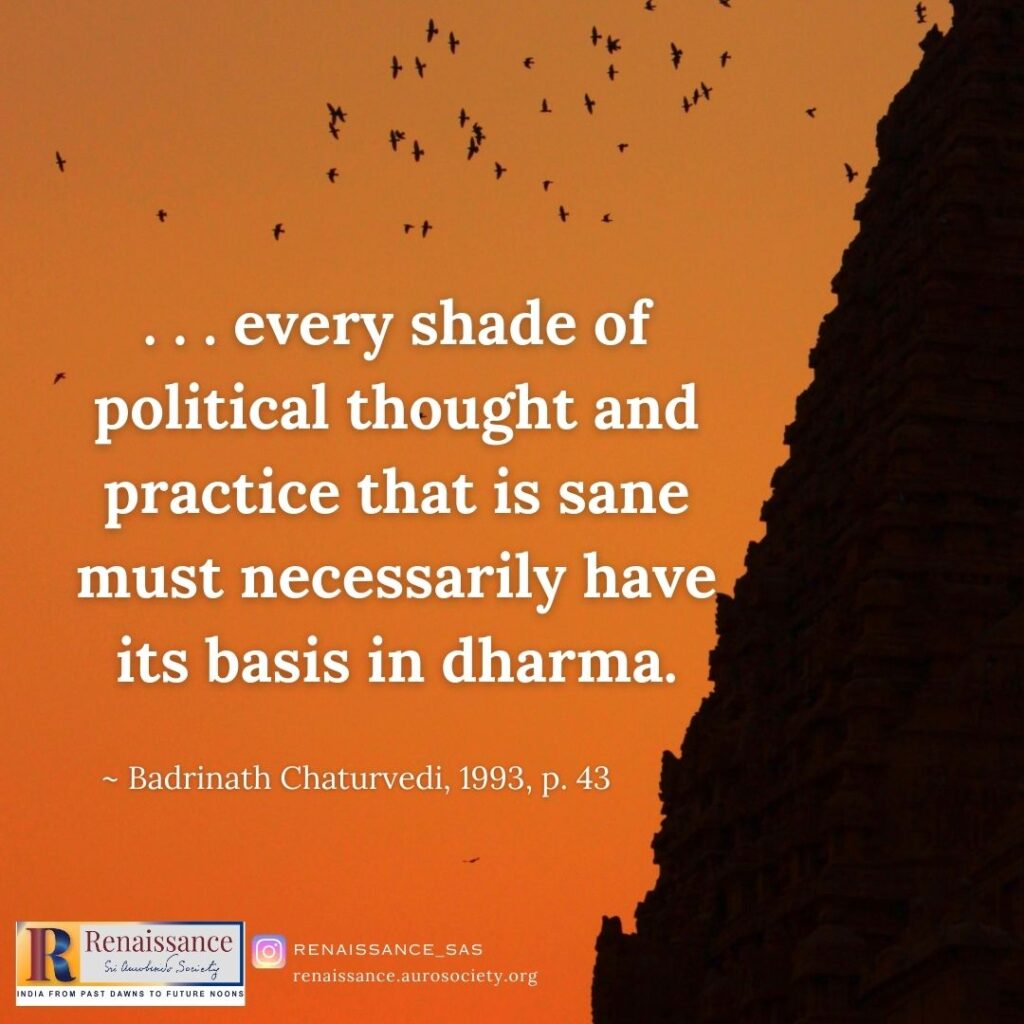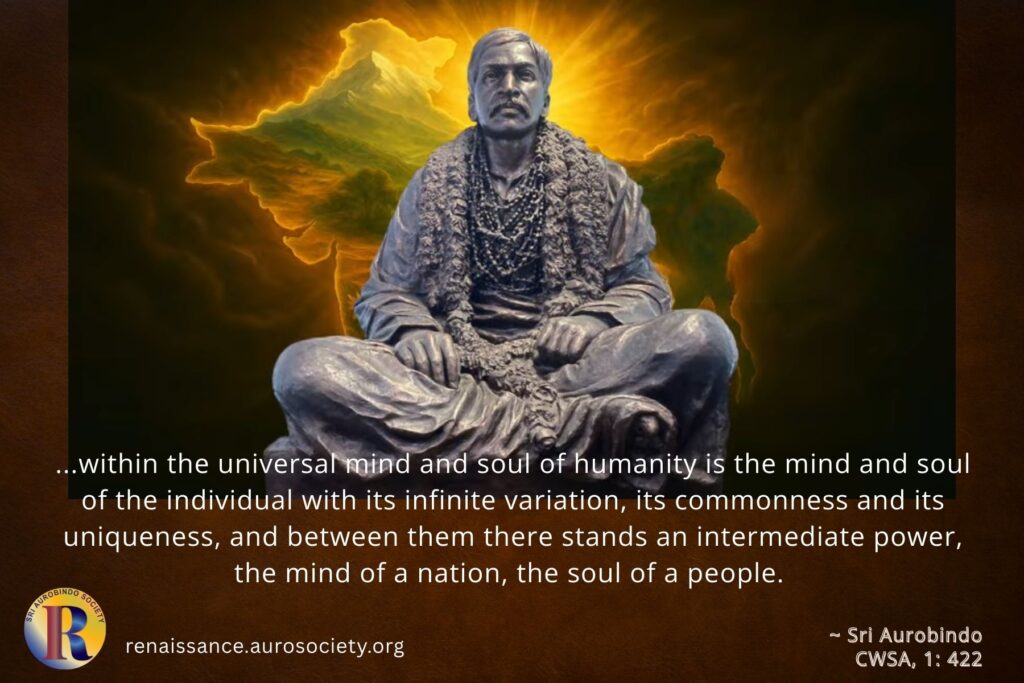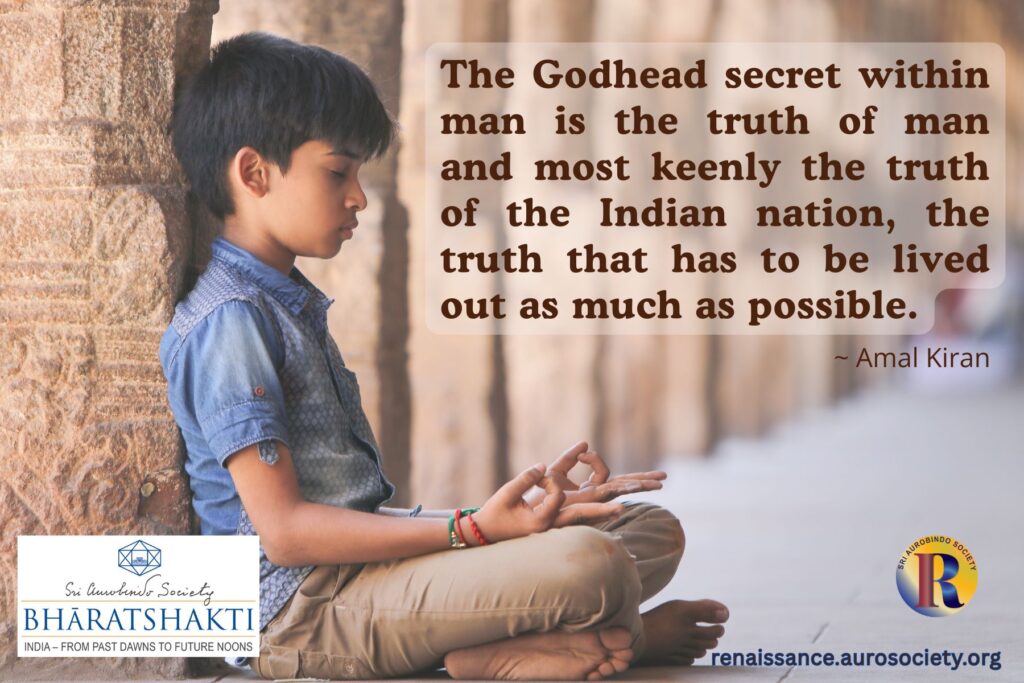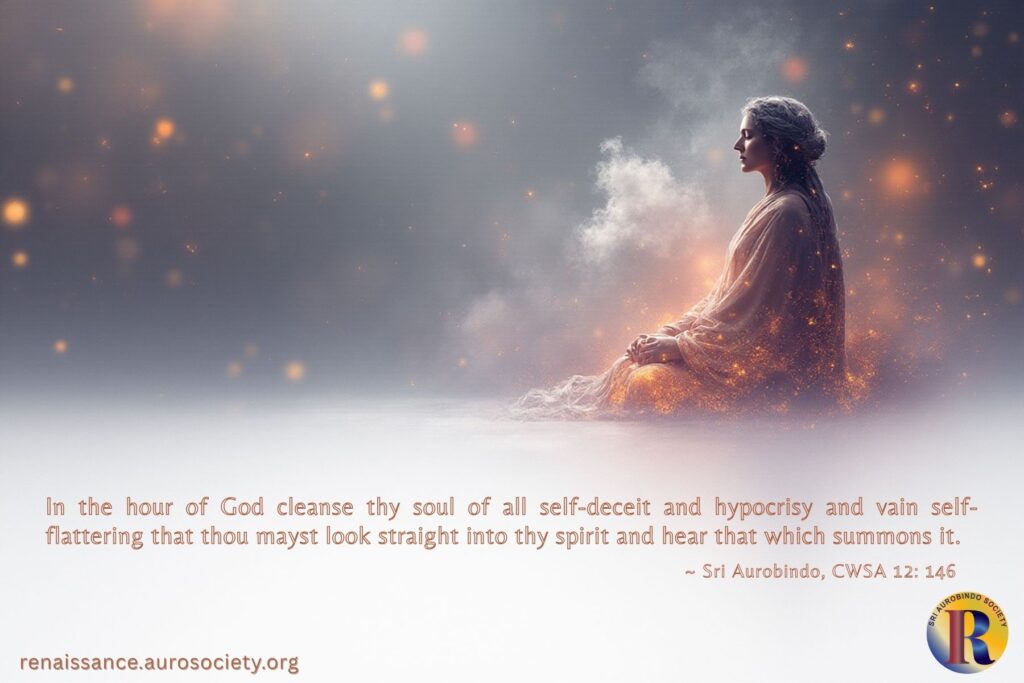Volume I, Issue 2
Author: Sisir Kumar Mitra
Continued from Part 2
Freedom, Monarchy and the Democratic Ideal in Ancient India
It is normal to Indian nature to regard as inviolable the right of the individual as well as of the collectivity – the smaller the collectivity, we may repeat, the stronger and more progressive it is likely to be – to grow into the fullness of its being by following its own particular line of development. There can indeed be no higher conception of democracy. And its modern advocates have yet to realise that the democratic ideal enshrines, however inchoately, the truth of a higher perfection which man, both in his individual and collective life, is destined to attain.
That is why there is so much insistence on the necessity of absolute freedom for man, so that he may be able to express all that is latent in him, and the best and highest that is latent in him is his eternal and immaculate divinity whose uncurbed manifestation is the goal towards which he is moving. Freedom and democracy are but its necessary aids.
It is a remarkable fact – singular and unique in the history of the world – that the wide prevalence of popular freedom in ancient India hardly found itself in conflict with the system of monarchy that existed. This was because the latter served only to augment the collective well-being of the people.
The King and the Dharma
The king was the servant of the people, the upholder of the Dharma, and his power was so hedged in as to prevent the growth of any personal despotism or any tendency towards absolutism or autocracy. Manu prescribes and justifies dethronement and even capital punishment for a king if he defies the law and develops into a tyrant. The land, says the same authority, belongs to the people, to those who cultivate it, the king being only its custodian.
Not any temporal power but the ideal rule of living, the Dharma, enunciated, fostered and enjoined upon the kings by the Rishis, was the real and greater sovereign. The king as a person, his ancestry, his family traditions, his personal and family prestige were matters of no moment from the point of view of this Dharma.
His chief function was to see to the proper observance of the Dharma by the people, and to prevent crimes, serious disorders and breaches of the peace. He himself was bound to obey the Dharma as also the rigorous rules and restrictions it imposed on his personal life and conduct and on the province, powers and duties and even on the prerogatives of his regal authority and office.
The Ramayana, the Mahabharata, the Puranas and several other sources of much historical information abound in examples of dutiful kings and equally dutiful subjects. Besides, the monarch almost always reflected the dignity of a stable civilisation and represented a free living people. He was the symbol of the country’s greatness and glory even as the representative assembly of his kingdom or empire mirrored the mind and will of his people.
The True Meaning of the Divinity of the King
The theory of the divinity of the king does not seem to have found much favour in the Vedic age. Several mantras, however, composed during the period of the Smritis, speak of the entry of deities into the king’s person at the time of his coronation. In certain sacrifices kings were compared with gods, and declared as the visible symbol of Prajapati, the Lord of creation. But, barring a very few of the law-makers, almost all of them were against placing the king above the Law. To them the majesty of the Law was higher than the majesty of the king.
The view of Gregory, the Great that even bad kings are divine was not only foreign but repugnant to Indian thinking.
We know Manu’s dictum on this point. Shukracharya calls a vicious and oppressive king not divine but demoniac. The king Vena who claimed exemption from punishment on the plea of his divinity was killed by the sages who did not care to examine the validity of his stand. The Mahabharata declares that if a king is unable to protect his subjects and administer his kingdom righteously, the subjects should kill him like a mad dog.
It is, therefore, clear that the idea of the divinity of the king was not accepted in India in its literal sense. It stood for virtues, great, noble and godly, which the king must possess that he might be fit to discharge the sacred and onerous duties of his high office. That is why so much stress was laid in ancient India on the training of the princes, for which the best teachers of the time were appointed.
The Smritis assert that the king is the trustee of the people’s interests, the State an instrument through which he is to guard those interests and provide scope for their full satisfaction, and that his supreme function lies in dealing out even-handed justice to all. The Arthaśāstra says that the ruler is created by Brahma as servant of the people. Therefore, in order to be equal to this delicate, difficult and sacred task, the king must have in him divine qualities.
This is the true meaning of the divinity that was attached to royalty in ancient India.

Dharma and Social Organisation
The State in ancient India, whether republican or monarchical, was not, as Sri Aurobindo has pointed out, a mere mechanical structure as the States in the world are today. It was a natural growth out of the extraordinarily complex social organisation of the people. And its real character can be understood when studied as a part of, or in relation to, the organic totality of the social existence of the people.
The laws, the customs and the institutions of ancient India were a natural organic development, and the State embodied them as a coordinating centre which for its sustenance and growth depended on the vitality of the parts comprising it. These parts were the social orders elaborated by the makers of the law.
These law-makers or law-givers were the Rishis whose treatment of human nature was based on their knowledge of the inner laws and forces that operate in the life of man and guide his evolution stage by stage.
Their clear perception of what man is in his nature enabled these unerring psychologists of ancient India to evolve a socio-religious system in which every individual nature would fulfil itself by following its own swadharma [1], and this fulfilment meant for every man his fitness for the next stage.
Thus, the people’s adherence to common ideals, their observance of common rules, and above all, their loyalty to Dharma, brought about a cohesive society consisting of diverse orders and institutions helping the people to feel at every stage and in every activity of their life the quickening and directing influences of a common social existence. This was how there developed a common social consciousness which became the most unifying factor in the community life of the people.
It was this consciousness again which largely promoted the growth and expansion of the State representing the people’s will to build and strengthen corporate organisations based on the sovereignty of the Dharma, the religious, ethical, social, political, juristic and customary law organically governing the life of the people.
The State, a Spontaneous Creation of People’s Will
The State was thus a natural and realistic expression of the social inclination of its human constituents freely and flexibly following, each according to his nature, the rules of a comprehensive scheme of life. It was never a rigid mechanical contrivance but a supple and spontaneous creation of the will of the people’s social being, a marvellous creation indeed, which, if ever viewed in the right perspective, will furnish the most conclusive proof of the socio-political genius of the race.
We wonder how the society, and as a matter of fact, the State could weld into its body-politic so many diverse elements, giving scope to each one for contributing its share to the growth and expansion of the whole. Yet it was a fact borne out by a mass of indisputable evidence.
A correct presentation of the early history of India must include this unique achievement of the race. It is because of this power of theirs to create unity out of apparent diversity that the ancient fathers of the race were able to build up a superb political system which lasted not for centuries but for millenniums. And this they were able to do because of their intuitive perception of the inner springs of the actions and interests of man as a social being.
[1] own law of action; true rule and way of being; truth of one’s own inner movement.
To be concluded in Part 4
Image credits
Cover image – Stupa no. 1, Sanchi: Source
Other Design: Satya



